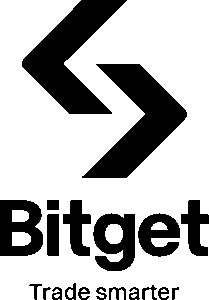FATF Urges Stronger AML for Crypto, Robinhood Tokenizes Stocks in EU

Latest Developments in blockchain and Digital Law: FATF, Robinhood, and Hong Kong’s Digital Asset Strategy
FATF Urges Enhanced AML Measures for Virtual Assets
On June 26, 2025, the Financial Action Task Force (FATF) published its sixth report detailing how various nations are implementing anti-money laundering (AML) and counter-terrorism financing (CTF) regulations concerning virtual assets (VAs) and virtual asset service providers (VASPs).
- FATF Urges Enhanced AML Measures for Virtual Assets
- Robinhood Unveils Tokenized Stocks and ETFs in the EU
- Hong Kong’s Ambitious LEAP Framework for Digital Assets
- Legal and Regulatory Streamlining
- Expanding the Suite of Tokenized Products
- Advancing Use Cases and Cross-Sectoral Collaboration
- People and Partnership Development
The report indicates that numerous countries, particularly those with significant cryptocurrency markets, have made strides in aligning their laws with FATF’s Recommendation 15 and its 2019 Interpretative Note, which outlines the application of AML/CTF regulations in the crypto space. Additionally, several jurisdictions are intensifying their supervisory and enforcement efforts.
Despite these advancements, FATF emphasizes that substantial work remains. The licensing and registration processes for VASPs are still inconsistent, and many regions struggle to identify the individuals and entities behind VASP operations. Offshore VASPs continue to pose challenges, particularly in terms of risk management.
FATF notes that 99 jurisdictions have either adopted or are in the process of adopting the “Travel Rule,” which mandates the sharing of essential information during cross-border crypto transactions. To assist with compliance, FATF has released new guidance that includes examples of effective supervisory practices.
The report also features updated statistics from the top 20 jurisdictions by crypto-asset activity. FATF asserts that achieving full compliance from these nations, which account for approximately 98% of global crypto transactions, would significantly mitigate risks in the sector. The report was informed by insights from several blockchain analytics firms, including Chainalysis and TRM Labs.
FATF further highlights the risks associated with the criminal misuse of crypto-assets, noting an uptick in stablecoin usage by malicious actors. Specifically, stablecoins have been increasingly linked to activities involving North Korea, terrorist financing, and drug trafficking. It appears that criminals are shifting their focus from other cryptocurrencies to stablecoins for illicit transactions.
The report also references the notorious theft orchestrated by the North Korean regime, which resulted in $1.46 billion being stolen from the ByBit exchange. With only a small fraction of the stolen assets recovered, this incident underscores the urgent need for robust international collaboration.
Lastly, the report warns about the rising prevalence of scams and fraud involving crypto-assets. In 2024, an estimated $51 billion in fraud-related crypto activities was reported. FATF stresses the necessity for both governmental bodies and private enterprises to address these threats, especially as scams become increasingly sophisticated.
While blockchain technology offers valuable tools for enhancing transparency, there is a pressing need for consistent global regulations to ensure system security. These regulations should be tailored to the unique risks associated with digital assets and leverage new technologies to effectively combat illicit financial activities. The latest FATF update serves as a reminder that these threats are continually evolving, necessitating agile regulatory responses. Australia is currently working on its own VASP framework, set to take effect in March 2026.
Robinhood Unveils Tokenized Stocks and ETFs in the EU
During the Ethereum Community Conference held in Cannes, France, Robinhood announced the introduction of over 200 tokenized stocks and ETFs, including shares from private companies like SpaceX and OpenAI, for its European customers. These tokenized equities are designed to provide 24/5 trading access, support for dividends, and zero commissions, although other fees may apply. Initially launched on Arbitrum, the tokens are expected to transition to Robinhood’s proprietary Layer 2 blockchain currently under development.
In addition to tokenized equities, Robinhood has rolled out several new features, including crypto perpetual futures for EU clients and crypto staking for US users, starting with Ethereum and Solana. Other offerings include deposit bonuses, a crypto rewards credit card, an AI-driven investment assistant, smart exchange routing, tax lot tracking, and advanced trading charts.
A spokesperson for Robinhood stated that these tokens provide retail investors with indirect access to private markets, thereby broadening opportunities. However, OpenAI clarified in a post on X that it is not a partner and did not endorse the OpenAI tokens.
Last month, Kraken launched its own tokenized stock offering called xStocks for select jurisdictions. Other platforms like FTX and Binance have previously introduced similar offerings.
The tokenization of stocks raises various regulatory and consumer protection issues. Under Australian law, tokenized stocks are likely to be classified as derivatives, may not accurately reflect the underlying stock price, and typically do not confer voting or dividend rights. Token holders usually have no claim to the underlying asset and may face redemption restrictions, including KYC requirements and fees.
In the case of xStocks, it appears that only select users who complete KYC with Kraken can mint and redeem tokenized equities. The tokens are issued by a special purpose vehicle (SPV) based in Jersey and are offered under a digital asset license in Bermuda. Kraken does not hold the underlying stocks, and token holders have a legal right to redeem the token for its cash value but lack ownership rights, voting, or dividend entitlements. Redemption and withdrawal fees may also affect their appeal as investment vehicles.
The issuer can only transact in the underlying stock during regular market hours, while tokenized stocks can be traded 24/7. This discrepancy could lead to pricing discrepancies outside of market hours, particularly on weekends, when market makers may be unable to hedge their positions. To mitigate this risk, they may widen spreads or withdraw liquidity entirely, exposing traders who buy during low-liquidity periods to significant losses if the equity market opens lower and the token price quickly adjusts.
Currently, Robinhood does not permit users to self-custody their tokenized stocks or trade them in decentralized finance (DeFi). In contrast, Kraken allows self-custody, which could enable these instruments to be utilized in DeFi applications. Robinhood plans to launch on Arbitrum and transition to its own Layer 2 blockchain to reduce gas fees for traders.
While the aim of tokenized stocks is to broaden access and enable participation in the digital economy, some critics argue that they primarily attract crypto-savvy traders and may not be well-suited for a sophisticated global equities market. Although tokenized stocks offer advantages such as 24/7 trading, improved market access, fractional ownership, and quicker settlement, they face regulatory and structural challenges that must be addressed to unlock their full potential. Robinhood’s announcement represents an early investment in the future of financial market tokenization, highlighting the global and interconnected nature of these markets and the potential consumer and systemic risks involved.
Hong Kong’s Ambitious LEAP Framework for Digital Assets
On June 26, 2025, the Hong Kong Government unveiled its second Policy Statement on digital assets (DA), building on its initial statement from October 2022. This new statement introduces the “LEAP” framework, which stands for Legal and regulatory streamlining, Expanding the suite of tokenized products, Advancing use cases and cross-sectoral collaboration, and People and partnership development. According to Mr. Christopher Hui, Secretary for Financial Services and the Treasury, LEAP aims to establish “a trusted, sustainable, and deeply integrated DA ecosystem within the real economy.”
Legal and Regulatory Streamlining
The Government plans to create a unified regulatory framework that encompasses DA exchanges, stablecoin issuers, and DA dealing and custodian service providers. The Securities and Futures Commission (SFC) will take the lead in licensing and registering DA dealing and custodian service providers, while the Hong Kong Monetary Authority (HKMA) will oversee banks and their DA-related activities.
The Financial Services and the Treasury Bureau (FSTB) and the HKMA will conduct a legal review to facilitate the tokenization of real-world assets (RWAs) and financial instruments, focusing on settlement, registration, and record-keeping. The statement also confirmed that Hong Kong will adopt international standards, including IOSCO’s policy recommendations, the Financial Stability Board’s crypto-asset framework, the OECD’s Crypto-Asset Reporting Framework, and the Basel Committee’s guidelines on the prudential treatment of crypto-asset exposures.
Expanding the Suite of Tokenized Products
The Government intends to regularize the issuance of tokenized Government bonds, building on its previous green bond pilot projects. This initiative includes exploring various currencies, tenors, and innovative features to ensure a consistent supply of high-quality digital bonds.
Through the HKMA and SFC’s Project Ensemble, the Government aims to promote use cases such as the tokenization of money market funds and revenue streams from assets like electric vehicle charging stations. Additionally, plans are underway to expand tokenization efforts across sectors such as precious metals, non-ferrous metals, and renewable energy.
The Government has proposed extending profits tax concessions currently available to privately offered funds and family-owned investment holding vehicles to include specified DA transactions, with changes expected to take effect in 2025/26, pending legislative approval.
Advancing Use Cases and Cross-Sectoral Collaboration
A new licensing regime for stablecoin issuers is set to take effect on August 1, 2025. The Government has invited proposals on how to test the usage of licensed stablecoins. Cyberport, Hong Kong’s digital technology incubator, will also launch a funding scheme to support blockchain and DA projects, focusing on high-impact applications that can serve as benchmarks for future use cases.
People and Partnership Development
The Government aims to position Hong Kong as a global hub for DA knowledge-sharing and international collaboration. It plans to work with industry stakeholders and academic institutions to cultivate a talent pool of entrepreneurs, researchers, and technologists, as well as to conduct joint research initiatives and training programs.
During the Wealth Management Expo on June 21, 2025, Financial Secretary Mr. Paul Chan cited ‘financial innovation’ as a key factor in Hong Kong’s potential to become the leading cross-border asset management center within the next two to three years. He noted that ten virtual asset trading platform licenses have already been granted, with an additional eight applications currently under review. The stablecoin framework set to launch on August 1 positions Hong Kong as one of the first jurisdictions to implement statutory regulation for stablecoins.
This Policy Statement marks a significant advancement for Hong Kong in the quest to lead digital asset innovation and shape the future of digital markets. Alongside this announcement, the FSTB and SFC have released a consultation on proposed regulations for DA over-the-counter transactions and custody. More broadly, these developments reflect a growing global consensus on the necessity for oversight and regulation as digital assets become increasingly integrated into the financial system.
The information provided in this article is intended as a general guide to the subject matter. For specific circumstances, specialized advice should be sought.







